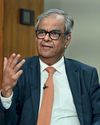India is importing less pharmaceutical raw materials from China, but the Chinese challenge is far from over.

ON January 29, 2016, the Narendra Modi government decided to withdraw the customs duty exemption on import of 73 bulk drugs. It was a tough call as import of these low-cost key active pharmaceutical ingredients (APIs), or raw materials – almost entirely from China – was helping Indian formulation companies, or entities that make syrups, tablets, injections, etc, remain competitive. An increase in medicine prices due to rise in input costs would have been unpopular as imports included raw materials used to make life-saving medicines for critical illnesses such as cancer and HIV/AIDS.
But the government bit the bullet because of a bigger threat. The import of low-cost bulk drugs from China, which touched almost $2 billion in 2014/15, was severely impacting domestic bulk drug production. India had become too dependent on raw materials from China for making several life-saving drugs and there were apprehensions that any abrupt end to this flow could trigger a public health crisis, as the domestic industry didn’t have the capacity to fill the gap. The fact that bulk drug and other key drug intermediate imports from China touched a record $2.14 billion in 2015/16, justified the fear.
Two years later, the government has a reason to rejoice, as the value of drug imports from China dropped one-third to $1.41 billion in 2016/17. The escalation in retail prices has not been steep. And there are signs of revival of bulk drug manufacturing hubs in states such as Gujarat and Telangana.
Has this been possible because of the withdrawal of the customs duty exemption? And, is there a visible change in the drug industry’s dependence on China? It is too early to say.
The Dependence
Diese Geschichte stammt aus der December 31, 2017-Ausgabe von Business Today.
Starten Sie Ihre 7-tägige kostenlose Testversion von Magzter GOLD, um auf Tausende kuratierte Premium-Storys sowie über 8.000 Zeitschriften und Zeitungen zuzugreifen.
Bereits Abonnent ? Anmelden
Diese Geschichte stammt aus der December 31, 2017-Ausgabe von Business Today.
Starten Sie Ihre 7-tägige kostenlose Testversion von Magzter GOLD, um auf Tausende kuratierte Premium-Storys sowie über 8.000 Zeitschriften und Zeitungen zuzugreifen.
Bereits Abonnent? Anmelden

"Inaction is worse than mistakes"
What was the problem you were grappling with?

TEEING OFF WITH TITANS
BUSINESS TODAY GOLF RESUMES ITS STORIED JOURNEY WITH THE 2024-25 SEASON OPENER IN DELHI-NCR. THERE ARE SIX MORE CITIES TO COME

AI FOOT FORWARD
THE WHO'S WHO OF THE AI WORLD GATHERED AT THE TAJ MAHAL PALACE IN MUMBAI TO DELIBERATE THE TRANSFORMATIVE IMPACT OF AI ON INNOVATION, INDUSTRIES, AND EVERYDAY LIFE.

Decolonising the Walls
ART START-UP MAAZI MERCHANT IS ON A MISSION TO BRING INDIA'S FORGOTTEN ART BACK HOME

"I'm bringing Kotak under one narrative, one strategy, one umbrella”
Ashok Vaswani is a global banker who spent most of his career overseas at institutions like Citi Group and Barclays, among others.

CHOOSING THE CHAMPIONS
The insights and methodology behind the BT-KPMG India's Best Banks and NBFCs Survey 2023-24.

'INDIA IS AT AN EXTREMELY SWEET SPOT'
The jury members of the BT-KPMG Survey of India's Best Banks and NBFCs discuss developments in the banking sector and more

FROM CRISIS TO TRIUMPH
Dinesh Kumar Khara stewarded SBI through multiple challenges during his tenure, while ensuring that profits tripled, productivity soared, and the bank consolidated its global standing

AT A CROSSROADS
BANKS ARE FACING CHALLENGES ON BOTH SIDES OF THE BALANCE SHEET-ASSETS AS WELL AS LIABILITIES-WHICH ARE PUTTING PRESSURE ON MARGINS.

EXPANSIVE VISION
Bajaj Finance, an outlier in terms of digitisation, faces stiff competition. But it continues to expand its reach